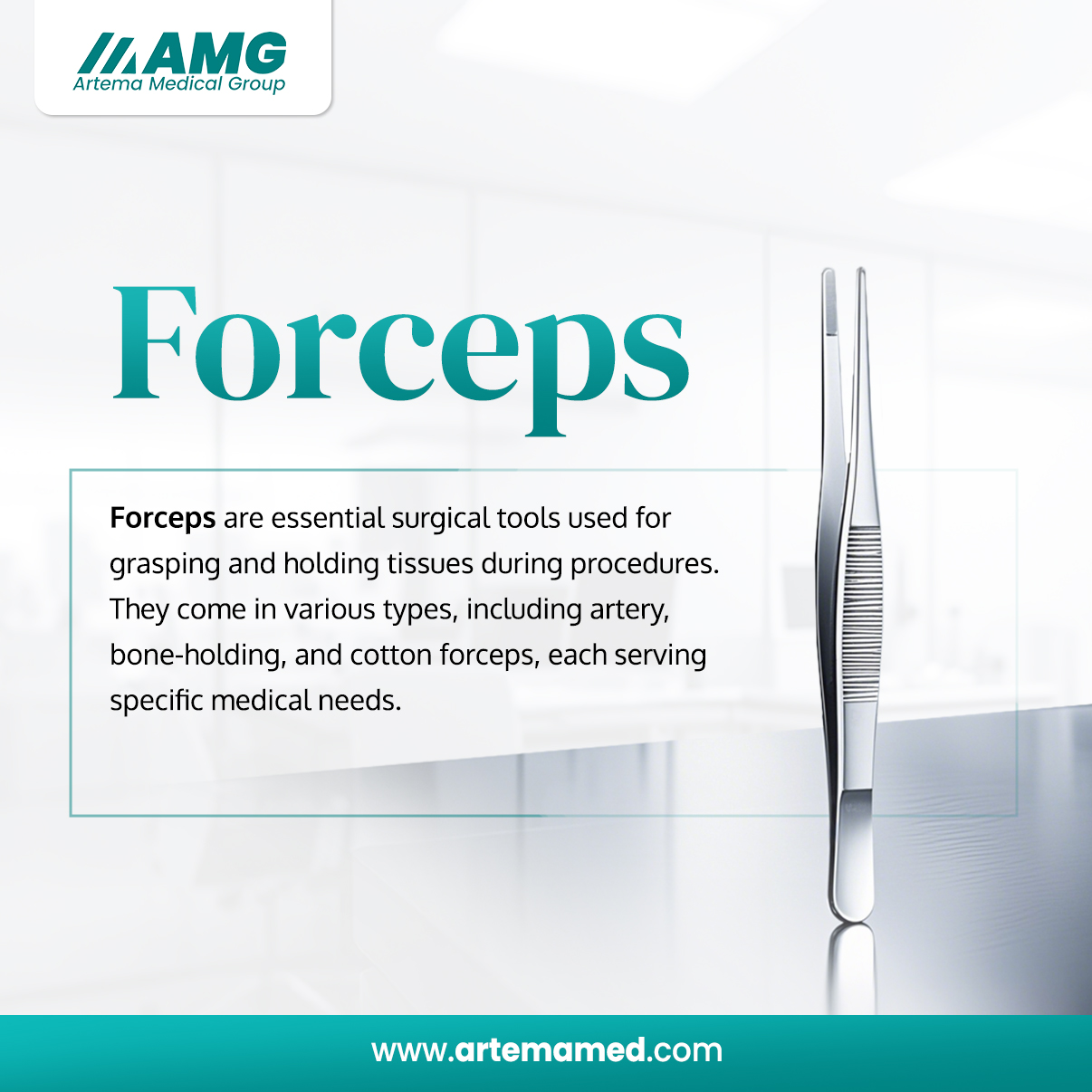The Importance of Surgical Forceps in Medical Procedures
Surgical forceps are a vital tool in the medical field. These instruments are designed to hold, grasp, or manipulate tissues and materials during surgery and medical procedures. Their importance cannot be overstated, as they provide precision and control, which are crucial for successful operations. Surgeons and medical professionals rely on them for a variety of tasks, including removing foreign objects, handling delicate tissues, and assisting in suturing.
Enhancing Surgical Precision with Surgical Forceps
Surgeries require a high level of accuracy, and even the smallest mistake can have serious consequences. Surgical forceps are designed to offer a firm grip and controlled movement, helping surgeons perform their tasks with minimal effort. They reduce the risk of damage to tissues, ensuring that procedures are carried out with care. The success of many operations depends on the ability to handle tissues delicately, and forceps provide the necessary support to achieve this.
Surgical forceps also contribute to the safety of procedures by minimizing direct hand contact with open wounds. This reduces the risk of infection, a critical factor in patient care. The precise control offered by these instruments allows surgeons to work efficiently, even in delicate operations. Without these tools, many procedures would be more challenging to perform, and the chances of complications would increase significantly.
Different Surgical Forceps Types and Their Functions
There are various surgical forceps types, each designed for specific medical purposes. The most commonly used include tissue forceps, hemostatic forceps, and dressing forceps. Tissue forceps are used for handling soft tissues during surgery. They have fine tips that allow for a secure grip without causing unnecessary damage. Hemostatic forceps are used to control bleeding by clamping blood vessels, preventing excessive blood loss, which is crucial for ensuring patient safety.
Dressing forceps are primarily used for applying and removing dressings or bandages. They have a smooth or serrated surface that provides a secure grip when handling sterile materials. These forceps play a crucial role in wound care and post-surgical treatment by ensuring proper hygiene. The choice of surgical forceps depends on the nature of the procedure, with each type serving a distinct function in medical practice.
The Role of Dressing Forceps in Wound Management
Dressing forceps are an essential tool in wound management. They allow healthcare professionals to apply and remove dressings without direct hand contact, which helps maintain a sterile environment. Proper wound care is necessary to prevent infections and promote healing, and dressing forceps make this process safer and more efficient.
Beyond wound care, dressing forceps are also used in minor surgical procedures such as removing sutures or handling delicate tissues. Their design makes them an excellent tool for working with small or sensitive areas. Whether used in hospitals, clinics, or general medical practices, dressing forceps play an important role in maintaining patient safety and hygiene.
Design and Efficiency of Surgical Forceps
The design of surgical forceps is carefully crafted to meet the needs of medical professionals. They are made from high-quality stainless steel to ensure durability and resistance to corrosion. This material allows them to be sterilized repeatedly without losing their effectiveness. Some forceps come with a locking mechanism that helps maintain a firm grip without continuous hand pressure. This feature is especially useful in procedures that require prolonged holding of tissues or objects.
The shape and size of surgical forceps vary based on their intended use. Some are long and slender to reach deep areas within the body, while others are shorter for more precise control. The tips of the forceps may be smooth, serrated, or have teeth, depending on their function. Smooth-tipped forceps are used for handling delicate tissues, while serrated or toothed tips provide a stronger grip on firmer materials. The efficiency of these instruments ensures that medical professionals can perform procedures with precision and ease.
Maintaining and Handling Surgical Forceps
Proper maintenance of surgical forceps is essential for their effectiveness and longevity. After each use, they must be cleaned and sterilized thoroughly to remove any biological material. This prevents contamination and reduces the risk of infection. Sterilization is typically done using heat, chemicals, or steam to eliminate bacteria and other pathogens.
Storage is also crucial in preserving the quality of surgical forceps. They should be kept in a dry and sterile environment to prevent rust or damage. Any forceps that show signs of wear or malfunction should be replaced immediately to ensure patient safety. Regular inspections and maintenance help maintain their functionality and reliability, ensuring they remain a dependable tool in medical practice.
The Evolution of Surgical Forceps in Modern Medicine
With advancements in medical technology, surgical forceps continue to improve. Modern designs incorporate better materials and ergonomic features to enhance ease of use. Some forceps are now designed with disposable materials to improve hygiene and reduce the risk of cross-contamination. These innovations contribute to better surgical outcomes and improved patient care.
Despite technological advancements, the fundamental role of surgical forceps remains unchanged. They continue to be a crucial part of medical procedures, ensuring precision, control, and safety. As medical practices evolve, these tools will remain indispensable in both simple and complex surgical interventions.
Conclusion
Surgical forceps are a vital tool in the medical field, providing precision and control needed for various procedures. Their different types, including tissue forceps, hemostatic forceps, and dressing forceps, serve specific functions that contribute to the success of surgical operations. Proper handling, sterilization, and storage of these instruments are necessary to maintain their effectiveness. As medical technology progresses, surgical forceps will continue to be refined, ensuring better patient outcomes and enhanced safety. Their role in modern medicine is invaluable, making them a fundamental part of surgical and medical practices worldwide.
More info: Artema Medical














1 comment